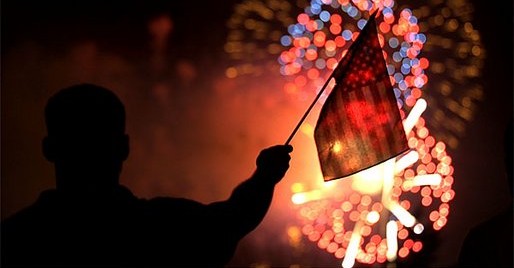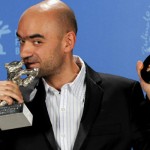As 4th of July is celebrated all over the US as a National Independence Day, FilmDoo brings you our Top 10 Films you can’t miss on the same theme from around the world! Celebrate your independence wherever you are!
10. PALESTINE
Omar (Dir: Hany Abu-Assad, Palestine, 2013)
Something for those who like to watch love stories. This one is mixed with Israel and Palestine controversy. Omar is a young Palestinian freedom fighter agrees to work as an informant after he’s tricked into an admission of guilt by association in the wake of an Israeli soldier’s killing. Omar won Oscar for Best Foreign Language Film in 2013.
9. CONGO
Lumumba (Dir: Raoul Peck, France/Belgium/Germany/Haiti, 2000)
The true story of the rise to power and brutal assassination of the formerly vilified and later redeemed leader of the independent Congo, Patrice Lumumba. In May 1960, a growing nationalist movement, the Mouvement National Congolais or MNC Party, led by Patrice Lumumba, won the parliamentary elections. Patrice Lumumba thus became the first Prime Minister of the Democratic Republic of the Congo. The Belgian Congo achieved independence on 30 June 1960 under the name “République du Congo” (“Republic of Congo” or “Republic of the Congo” in English).
QUOTE: “Don’t weep my love. One day history will have its say. Not the history they teach in Brussels, Paris or Washington, but our history. That of a new Africa.”
8. USA
All For Liberty (Dir: Chris Weatherhead, USA, 2009)
A brilliant US independent film on national independence, just what today’s day should be about. All For Liberty is based on the true story of Captain Henry Felder whose determination to resist tyranny led to his long bitter fight against the British Empire during America’s War for Independence. Long lost from historical records, Felder’s stand along with other militia leaders in the back country of South Carolina from 1776-1780 was instrumental in diverting British troops and energies, while George Washington’s army lay nearly defeated far to the north.
QUOTE: “I can not, I will not stop. The only stop is liberty.”
7. SOUTH AFRICA
The Color of Freedom/ Goodbye Bafana (Dir: Bille August, Germany/France/Belgium/South Africa/Italy/UK/Luxembourg, 2007)
Winner of 2 Palmes D’Or, a film based on the memories of Nelson Mandela’s prison guard. In the restrictive high security prison his job is to censor all written and verbal communications between prisoners, their visitors, and correspondence. James is uncomfortable when he witnesses Caucasian police and security officers’ brutality against civilians, including infants, and tries to understand why Nelson became a rebel. This leads him to examine the ‘Freedom Charter’, a banned document, reportedly known to incite violence against ‘whites’. And when he does read this document, he changes his mind about Nelson’s
QUOTE: “I fight for a better world, where people like you and I can live peacefully side by side. These are ideas I would die for.”
6. PHILIPPINES
El Presidente (Dir: Mark Meily, Philippines, 2012)
Aguinaldo was the power and glory behind the Filipinos’ fight against Spain. He was instrumental in unifying regional factions during the revolution. His government led to the creation of the Philippine flag, the Philippine National Anthem, and the first Philippine Constitution. But in between, controversies on his political and personal agenda, including his alleged connivance with the Americans and the Japanese, tainted his glorified status.
5. INDIA
The Legend of Bhagat Singh (Dir: Rajkumar Santoshi, India, 2002)
This is the story of the revolutionary, Bhagat Singh. The man who sacrificed his life to gain freedom for India. Bhagat was born in British India during the year 1908. As a child he witnessed numerous atrocities committed on fellow Indians by their British rulers, who came to trade under the guise of the East India Company, but ended up controlling most of the nation, and permitting tyrants such as General Dyer to massacre thousands of innocent men, women and children in Jallianwala Baug.
4. INDONESIA
Soekarno: Indonesia Merdeka (Dir: Hanung Bramantyo, Indonesia, 2013)
Year 1942, The Nederlands-Indií« Government in Java Island captured Soekarno, an aspiring young man who wants to free Indonesia from colonialism. Soekarno was the leader of his country’s struggle for independence from the Netherlands and was Indonesia’s first president, in office from 1945 to 1967. He was a prominent leader of Indonesia’s nationalist movement during the Dutch colonial period, and spent over a decade under Dutch detention until released by the invading Japanese forces. He led Indonesians in resisting Dutch re-colonization efforts via diplomatic and military means until the Dutch acknowledgment of Indonesian independence in 1949.
3. BOSNIA AND HERZEGOVINA
Pretty Village, Pretty Flame (Dir: Srdjan Dragojevic, FR Yugoslavia, 1996)
In 1991, the multi-ethnic Socialist Republic of Bosnia and Herzegovina, which was inhabited by Muslim Bosniaks, Orthodox Serbs and Catholic Croats , passed a referendum for independence. This was rejected by the political representatives of the Bosnian Serbs, who had boycotted the referendum and established their own republic. Following Bosnia and Herzegovina’s declaration of independence (which had gained international recognition), the Bosnian Serbs mobilized their forces inside the Republic of Bosnia and Herzegovina in order to secure Serbian territory, then war soon broke out across the country, accompanied by the ethnic cleansing of the Muslim Bosniak and Croat population, especially in eastern Bosnia and throughout the Republic of Serbia.
2. IRELAND
The Wind that Shakes the Barley (Dir: Ken Loach, Ireland/UK, 2006)
Winner of the Palme D’Or at the 2006 Cannes Film Festival. A story about medical graduate Damien O’Donovan during a war for independence in Ireland. Just when he’s leaving Ireland to work in a highly reputed London hospital, witnessing gross abuse of commoners changes his mind. He returns and joins the local IRA brigade, commanded by his brother Teddy. In the December 1918 election, the Irish republican party Sinn Féin won a landslide victory in Ireland. On 21 January 1919 they formed a breakaway government and declared independence from Great Britain. That same day, two members of the armed police force, the Royal Irish Constabulary (RIC), were shot dead in County Tipperary. This is often seen as the beginning of the conflict.
QUOTE: “I tried not to get into this war, and did, now I try to get out, and can’t.”
1. ALGERIA
The Battle of Algiers ( Dir: Gillo Pontecorvo, Italy/Algeria, 1966)
In the 1950s, fear and violence escalate as the people of Algiers fight for independence from the French government. A film commissioned by the Algerian government that shows the Algerian revolution from both sides. This was a war between France and the Algerian independence movements from 1954 to 1962, which led to Algeria gaining its independence from France. An important decolonization war, it was a complex conflict characterized by guerrilla warfare, maquis fighting, terrorism, the use of torture by both sides, and counter-terrorism operations.
QUOTE: “It’s hard to start a revolution. Even harder to continue it. And hardest of all to win it. But, it’s only afterwards, when we have won, that the true difficulties begin. In short, Ali, there’s still much to do.”





